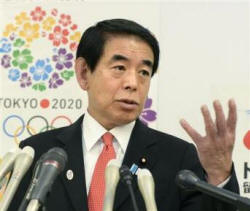 |
|


Japan
revises teaching manuals, says islands its territory
[January 28, 2014] By Elaine Lies
TOKYO (Reuters) — Japan said on Tuesday it was revising teaching manuals to make clear that two sets of remote islands at the center of disputes with China and South Korea are integral parts of its territory, prompting protests from an angry Seoul and Beijing.
|
Japan's ties with the two countries are increasingly strained
over a host of issues, including the territorial rows and
Japanese Prime Minister Shinzo Abe's visit late last year to the
Yasukuni Shrine, where convicted war criminals are honored along
with millions of war dead. The conservative Abe has said he wants to revise Japanese
history to have a less apologetic tone, a sensitive topic for
Asian neighbors such as South Korea and China, where memories
linger of Japanese aggression before and during World War Two. Education Minister Hakubun Shimomura said the ministry was
revising the manuals to teach "properly" about Japanese history
and that it would make diplomatic efforts to explain the move to
Japan's neighbors. "It is extremely important that the children who will bear our
future can properly understand our territory," he told a news
conference. He said the teaching manuals would be changed to make clear that
the rocky islets controlled by South Korea but claimed by both
nations, known as Takeshima in Japan and Dokdo in South Korea,
were Japanese territory. South Korea's Foreign Ministry promptly summoned the Japanese
ambassador to protest. Earlier, the Ministry urged Japan to repeal the changes, which
it said were teaching children a false claim to the islets. "Our government strongly condemns this and asks Japan to
immediately withdraw it," it said in a statement. The manuals will also add reference to the Senkakus, at the
center of a dispute with China, which calls them the Diaoyus,
and reiterate Tokyo's stance that these are an integral part of
Japanese territory and there is no dispute over their ownership. China has also lodged a protest, saying the islands have always
been Chinese, said Hua Chunying, spokeswoman of the Chinese
Foreign Ministry. "We once more urge Japan to respect historic realities, stop
provocations and teach the younger generation a correct
historical perspective," she told a daily news briefing. Japan's changes will affect classes in history, geography and
civics in junior and senior high schools, but are not legally
binding. Asked about the territorial rows, Shimomura said he felt it was
too bad that there were competing claims to the islands and
repeated that historically, the islands were part of Japan. "We must make efforts to politely explain our position to both
nations and seek their understanding," Shimomura said. The announcement came just days after the head of Japan's public
broadcaster triggered a furor in Asia with comments on military
brothels during World War Two. On Monday he expressed regret,
terming his remarks as "extremely inappropriate." Both China and Korea suffered under Japanese rule, with parts of
China occupied in the 1930s and Korea colonized from 1910 to
1945. (Additional reporting by Ju-min Park in Seoul and Ben Blanchard in Beijing; editing by Clarence Fernandez) [© 2014 Thomson Reuters. All rights reserved.] Copyright 2014 Reuters. All rights reserved. This material may not be published,
broadcast, rewritten or redistributed.
|


